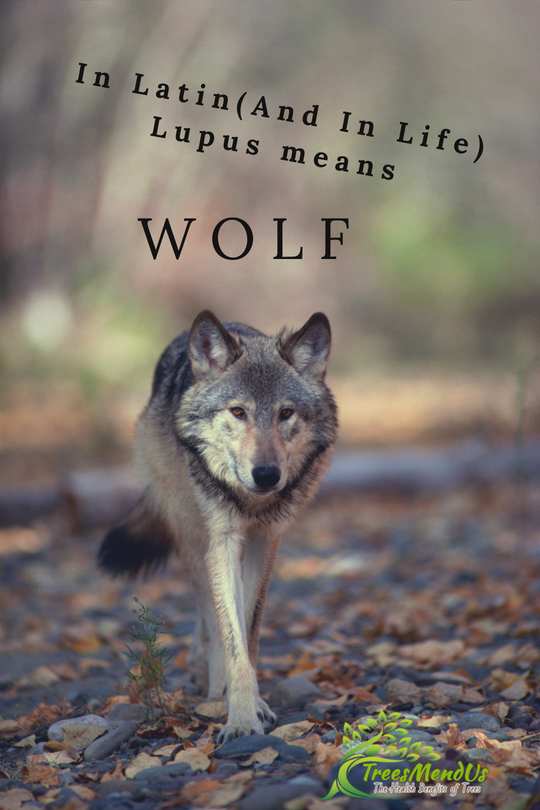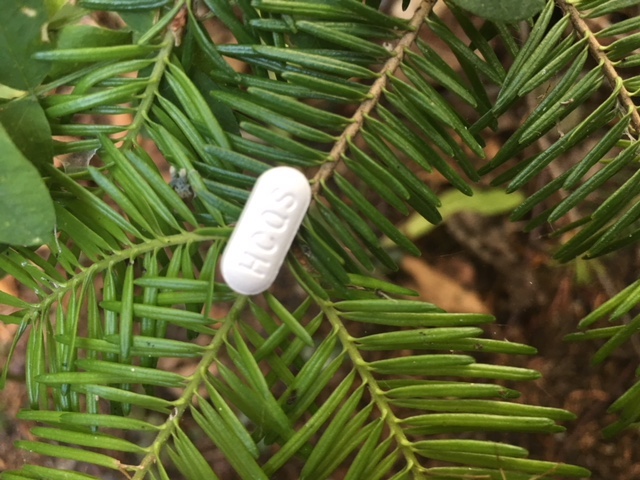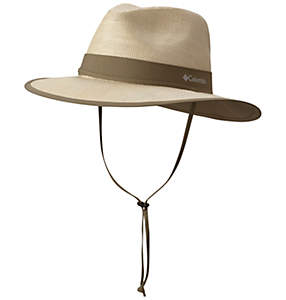
Lupus in latin means wolf. Fear. Terror. An apt word for any life altering disease.
In my neck of the woods, there are wolves. I rarely see one. But I always know they are there.
Wolves: the stuff of ancient fairytales. Brothers Grimm fairytales. Little Red Riding Hood. Irrational fear of wolves is in our DNA.
A healthy fear of wolves is what we have here in northern Manitoba, Canada. We respect wolves here. There are certain things we do not do.
Although I often walk in the woods alone, I do not do this at hunting times (between dusk and dawn).
I do not walk with food in my back pack. I do not want to smell like a good meal.
Same with Lupus. There are features of the disease that I pay attention to and signals for how I need to manage the disease.
I respect the: knife-like bone pain, extreme fatigue, face/body itchy red rashes, scarring alopecia (bald hair patches that won’t come back) and low self esteem.
I learn to do what I can to keep these wolves at bay. I am open to all things that help.
Any Chronic Disease Management Needs Lots of Angles: Medication and Self Care
Any chronic disease needs lots of angles. The medical system treatment (medications and medical tests) is one part. Healthy eating, regular exercise, not smoking, and limited alcohol intake are the other parts.
Lupus: Medication, Trees, and Wolves
My earliest memories are of wolves and trees — a sense of fear balanced by intense love for trees.
When I got my Lupus (SLE) diagnosis two years ago, it came quite naturally to head to the trees, to The Bush (as we say in Pine Falls, Manitoba).
I needed to clear my head. My heart needed mending. Being in the bush forced me to be in my body not in my mind.
Amazing things happened to me after I started walking in the woods every day.
My anxiety and depression lifted. My pain completely disappeared.
I fell in love with life again. I felt alive. I felt like my old self every single time I looked into the branches of a tree.
This rapid return to my normal relaxed self (only when I was outside) was so consistent when I was close to trees, that I began to research.
My background is nursing and as a university professor, I am trained to go to the peer reviewed clinical trails.
I found the most compelling evidence about the health benefits of trees. The research is so compelling that I had to start my website called Treesmendus.
This is what I found. The links to the research are in this recent post “The Seven Health Benefits of Walking (And Working) With Beauty Entrpreneur Jennifer Walsh”

Medication for Lupus: Plaquenil is a “Disease Modifier”
I could not walk without the traditional drug of choice for Lupus: Plaquenil. It is also called Hydroxychloroquine. This medication is called a “disease modifier.” This means it makes the wolves at bay. After all, we are talking about a chronic disease.
It is an antimalarial medication that also mysteriously works in treating Lupus.
There is evidence it may interfere with communication between cells in the immune system. This action suppresses the normally overactive immune response in lupus patients.
It works for me. I take it. I keep the dose to low at (200mg a day) and (400 mg 2 days a week). It allows me to walk by decreasing the pain and swelling. It helps prevent joint damage.
According to a non profit kaleidoscopefightinglupus.org studies have shown that lupus patients on antimalarials actually live longer than those who are not. ( I could not find the original research study.)

How do antimalarial drugs work to control lupus symptoms?
Here are some of the ways in which Plaquenil is used to control lupus symptoms:
- May prevent lupus flares by as much as 50%
- Reduce muscle and joint pain
- Reduce lupus related rashes
- Protect against pleuritis (inflammation of the lining of the lungs)
- Protect against pericarditis (inflammation of the lining of the heart)
- May prevent kidney damage
- May prevent lupus from affecting certain organs, central nervous system (your brain and spinal cord) and the kidneys
- Reduce fever and fatigue
- Restrains the immune system without increasing the odds for infections
- Protects against UV light
- Improves skin lesions that are not responsive to topical treatments (ointments and creams)
- Can lower cholesterol and blood glucose levels
- May decrease the likelihood of blood clots
- Effective in treating rheumatoid arthritis
- Effective in treating Sjogren’s syndrome, a common overlapping disease with lupus
Accepting Things As They Are: It Really Is Ok
I am not trying to defeat the fear of the wolf of Lupus. I am learning to accept the sadness and fear. I keep moving and accept things as they are. There is a space between love and fear. It is where time suspends. It is when I am close to trees. Overwhelm goes away. I look into the trees and know it is ok — it is really ok.
Do you know someone who has a chronic disease? There is no cure. But there are many things we can control. One of them is developing the tiny habit of stepping outside.
Facebook Group Ditch Inside For Outside Tribe
Please join our facebook group Ditch Inside For Outside Tribe

And do not be afraid to go outside. As long as you have the right sun protection
Please check out my related article here: How to Slay Sun Sensitivity (Even If You Have Lupus).





How amazing is that! I never knew that. I love this post!
You are a wonderful writer!!! You made lupus easy to understand and interesting. I now believe I have seen people with these symptoms and had no understanding of why or what it was. You are strong and your story is important! Thank you for sharing!
Your posts are so real and relatable. I appreciate nature more now and take a second look at trees. Stay strong.
Never really knew too much about Lupus till this post!
I could not imagine living with such a chronic disease. My heart goes out to you. And I’d like to add that I fight my own wolves, at times, and it’s funny how getting outside for a walk or even sitting in the sun seems to help. Thank you so much for being open about your illness. Many positive vibes coming your way.
Such an interesting connection. Thank you for sharing your story!
How wonderful that being close to the nature will actually heal it, I also believe close to nature will will reset our mind too!
I’m so sorry for your diagnosis and the pain you have to live with. But I am so happy that you have found strength and some relief in walking in the woods. I agree with you that the forest and nature, combined with exercise, can do unbelievable things for our physical and mental health.
So much great information here. I know a few people who suffer from this and it is good to hear there is hope!
I love your posts. I’m always reminded to get outside and next to trees. Thanks for the education you do!
I just love your posts so much. I always learn something, and they always inspire me to get outside. I live in the desert, so I need to make a conscious effort to go on trips to trees more often. Thank you for sharing!
Wow! This was a great article! I never knew that lupus mean wolf! I liked how you did the comparisons in the beginning of the article. Also some great information to know. Thank you!
That is great that the woods helped you to feel so good! I hope others are able to get out in the woods as well.
What a beautifully written post. I especially like the metaphor with the wolves. After 4 years of living in an area with very limited trees, I’m happy to have moved to a new town that has lots of mature trees. It was one of the first things I noticed when I visited our new area and what I had missed from where I grew up. Thank you for sharing the health benefits of the trees!
Wow very interesting information about being close to trees. What do you mean exactly when you say “brain plasticity”?
I love that you acknowledge that healing requires many angles! We often forget about the holistic aspects!
Verla, I love the lupus/wolf symbolism you’ve written so eloquently about. You encourage so many people to get out and enjoy trees and fresh air, whether for health or for healing, and you will do so for a long time to come. <3
I am so happy that you “fell in love with life again”! 😊
You have quite a story and tremendous courage and strength. Good luck to you!
What a beautiful take on living with a chronic disease process. Just because you have a diagnosis does not mean life is over–it is a chance to adapt and grow. Blessings on your journey.
My husband has Chron’s and that is a chronic disease so I know somewhat where you’re coming from. Thank you for writing this post to bring awareness!